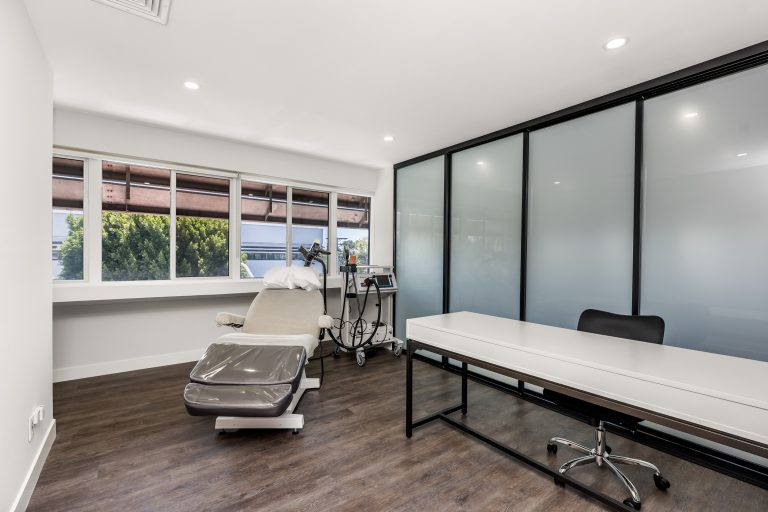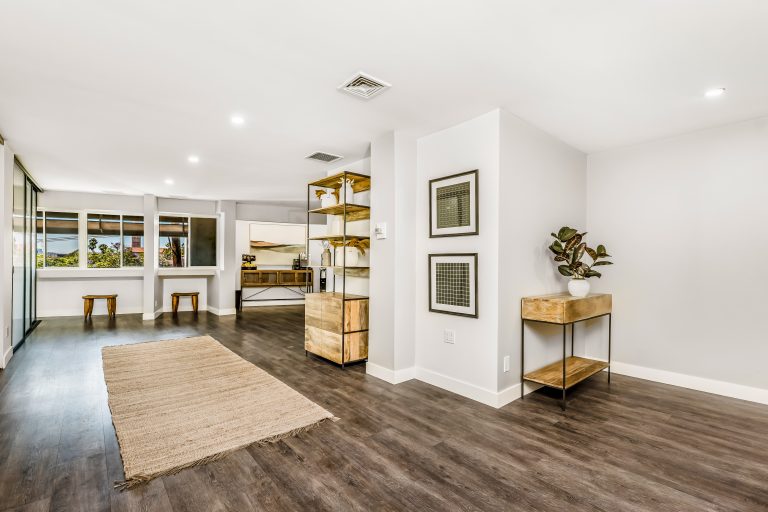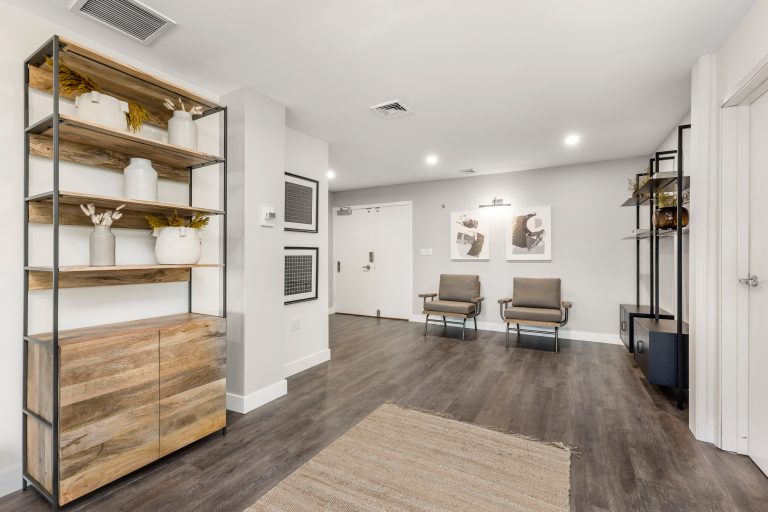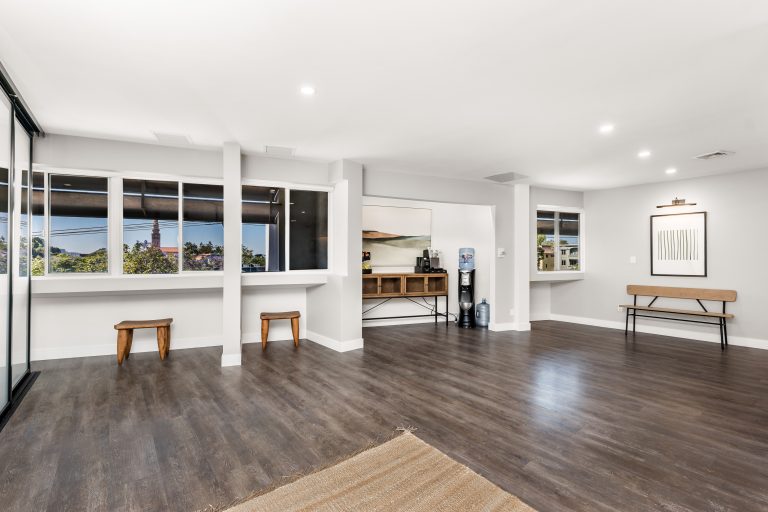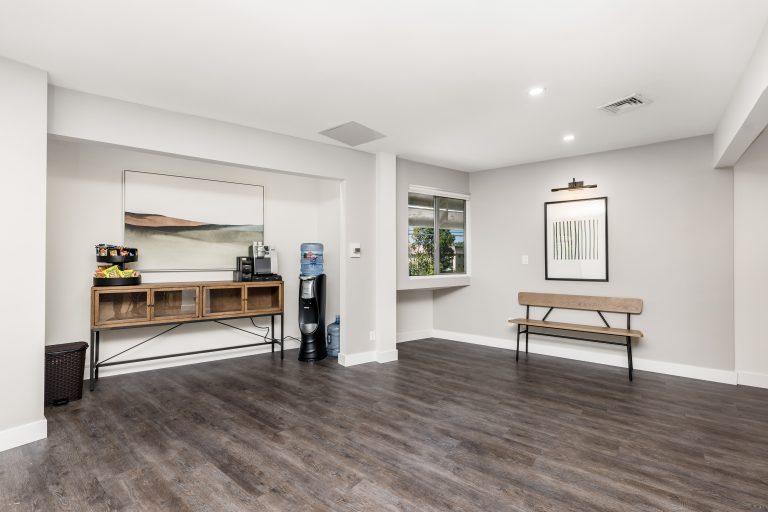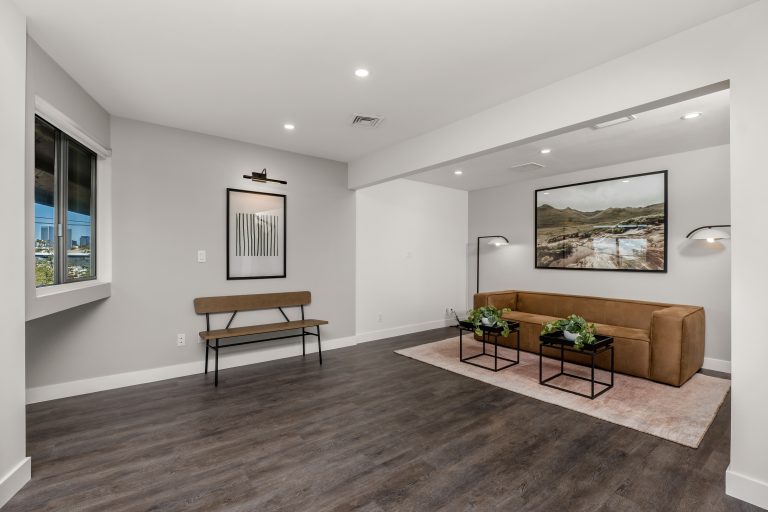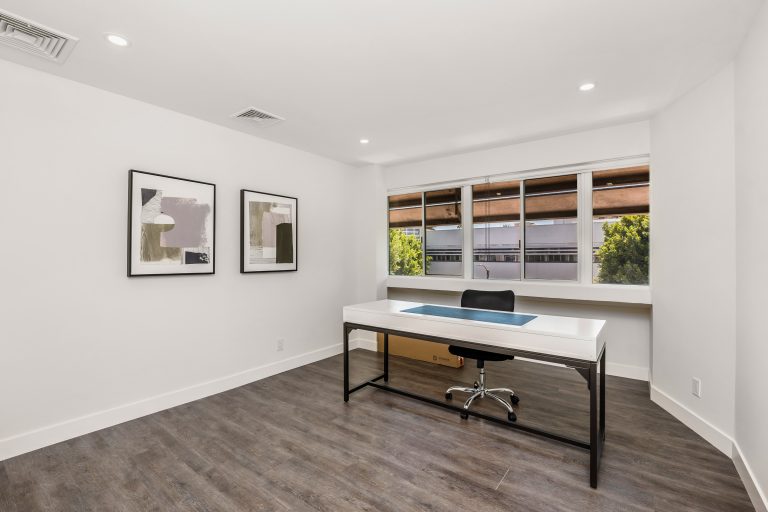Mental health is an important aspect of our overall well-being, and depression is one of the most common mental health disorders affecting millions of people worldwide. If you’re in South Pasadena, it helps to know that there are various depression treatment options available to help you manage your condition and regain control of your life.
At Lucid Wellness Center, we understand individuals’ unique challenges when dealing with depression. Our compassionate clinical care and evidence-based treatment modalities are designed to empower patients to help themselves for lifelong success.
In this article, we’ll dive into the available depression treatment in South Pasadena and answer some of your most frequently asked questions. Reading this article should provide give you the information you need to make informed decisions about your mental health.
What is Depression?
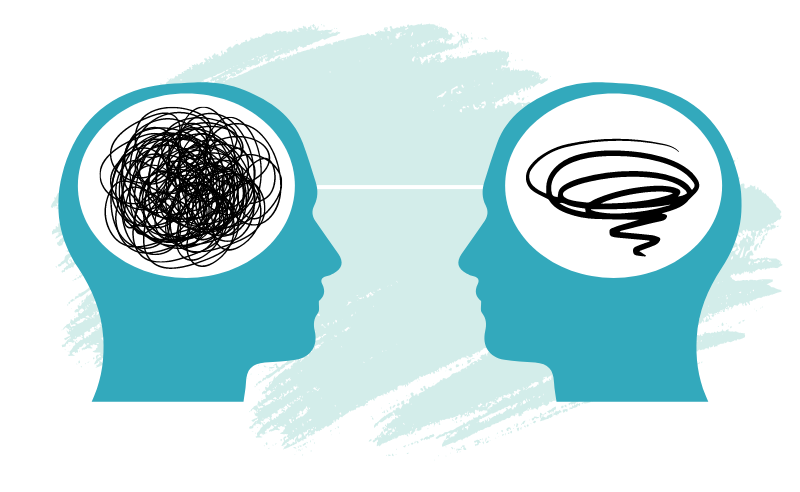
What are the Types of Depression?
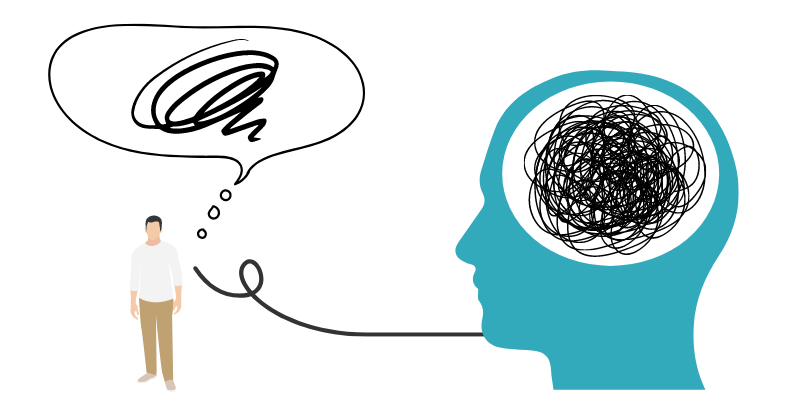
Depression is a complex mental health disorder that can manifest in different ways. This condition exists in different kinds, and each one has its own set of signs and symptoms.
Understanding the different types of mental health issues can help individuals and mental health professionals tailor individualized treatment plans to meet a patient’s specific needs.
Below are the different types of depressive disorders according to the Diagnostic And Statistical Manual Of Mental Disorders, Fifth Edition:
- Major depressive disorder (MDD) is the most common type of depression. People diagnosed with MDD have persistently experienced feelings of sadness, hopelessness, or worthlessness persistently for at least two weeks in addition to other symptoms.
- Atypical depression is a form of MDD with features that vary slightly from typical MDD. People with this condition have the so-called mood reactivity, meaning that they usually experience
atemporary mood improvement in response to positive events. They also experience increased appetite and are more sensitive to rejection. - Persistent depressive disorder (PDD), also known as dysthymia, is a type of depression lasting at least two years. Dysthymia is often milder or less severe than MDD but can last much longer.
- Premenstrual dysphoric disorder (DMDD) is a type of depressive disorder that comes with premenstrual syndrome (PMS) symptoms and usually comes in the weeks preceding a person’s period. PMDD also causes anxiety and mood changes that can improve within a few days after the period starts. People with PMDD can have severe depression and PMS signs that may interfere with their everyday life.
- Depressive disorder due to another medical condition is a type of depression caused by another medical condition. Certain conditions like hyperthyroidism, heart disease, Parkinson’s disease, cancer, and chronic pain can create changes in the body. This can lead to developing depressive disorders. Oftentimes, the depressive symptoms will improve as soon as the underlying condition is treated.
- Seasonal affective disorder (SAD) is a type of depressive disorder that is related to changes in the seasons. This type of depression often starts to occur during the fall and winter months when there is less sunlight. SAD is characterized by feelings of sadness, fatigue, and social withdrawal. This will often improve during the spring and summer months.
- Prenatal depression and postpartum depression (PPD) are depressive disorders linked to pregnancy. People with prenatal depression experience signs of moderate to severe depression during pregnancy, while people with PPD develop and experience signs within four weeks after delivering a baby.
- Depression with symptoms of psychosis is a type of severe depression that involves delusions (disturbing, false fixed beliefs) or hallucinations (hearing or seeing things that others do not see or hear) in addition to the usual signs of depressive disorders.
Other Related Conditions
Depression rarely occurs on its own. It is usually accompanied by other mental or physical illnesses. Below are some conditions that are related to or may occur alongside depression:
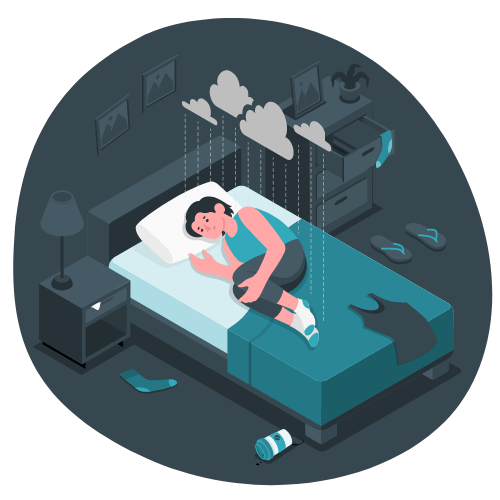
- Bipolar Disorder. Also known as manic-depressive illness, bipolar disorder is a mood disorder characterized by episodes of depression and mania. Mania is a state of elevated or irritable mood, excessive energy, and decreased need for sleep. People with bipolar disorder experience episodes of mania alternatingly episodes of depression, and the severity and frequency can vary from person to person.
- Anxiety disorders. People with depression often have anxiety as well. In fact, anxiety and depression are the two most common mental health conditions, and they often occur together.
- Substance use disorders. People with depressive disorders may use drugs or alcohol as a way to self-medicate and cope with their symptoms. Unfortunately, this can lead to drug and alcohol addiction and worsen their condition.
- Eating disorders. Eating disorders and depression often go hand-in-hand. In fact, research suggests that up to 50% to 75% of people with eating disorders also have depression.
- Personality disorders. People diagnosed with personality disorders, such as borderline personality disorder and narcissistic personality disorder, can have dual diagnoses. Other times, they may experience depression as a symptom of their disorder.
What are the Symptoms of Depression?
Depression is a serious mental health condition that can significantly impact a person’s everyday life. Understanding the symptoms of depression is the first step in identifying and seeking treatment for the disorder.
People experience depression differently, but there are some common signs that are associated with the condition, including:
- persistent feelings of sadness, hopelessness, and helplessness
- loss of interest in activities they once enjoyed
- changes in appetite or weight
- sleep disturbances, whether in lack of sleep or excessive sleeping
- feelings of fatigue or lack of energy
- difficulty concentrating, making decisions, or remembering things
- headaches, stomachaches, or other physical complaints that have no apparent medical cause
- feelings of worthlessness or guilt
- suicidal thoughts or behaviors
- low sex drive
- lack of energy
- changes to the menstrual cycle
- speaking or moving slower than usual

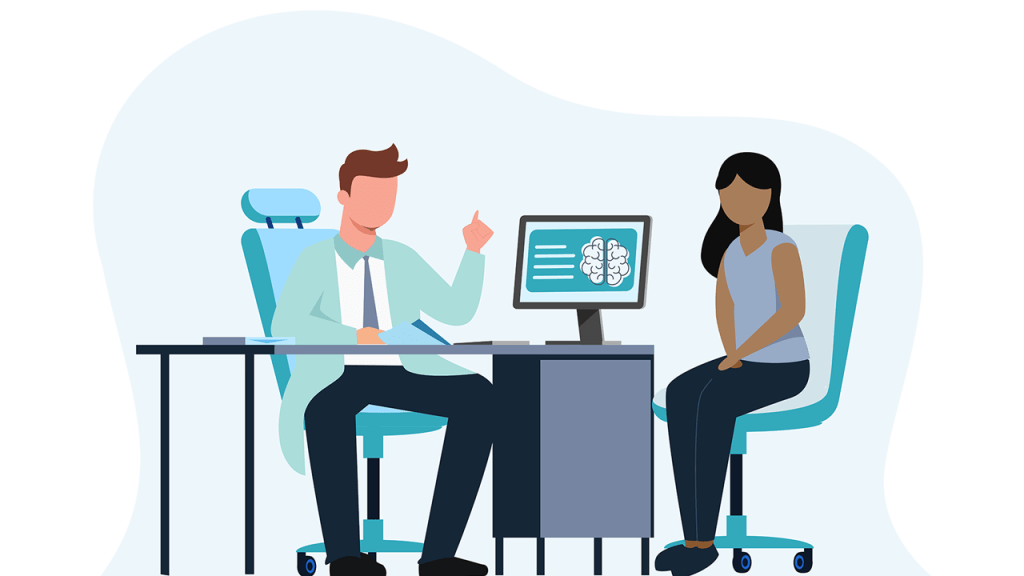
Benefits of Seeking Professional Help for Depression
Depression can be a debilitating mental health condition affecting a person’s relationships, work, and overall health. Whether you have mild, moderate, or severe depression, there is depression treatment in South Pasadena that offers suitable treatment programs to help manage your condition.
Still, many people go untreated and undiagnosed. Lack of resources, lack of trained healthcare providers, and the stigma that comes with mental health illnesses are some of the barriers that can make it hard to get the right care.
At Lucid Wellness Center, we believe that everyone should be able to receive proper care for their conditions regardless of their age, sex, race, or financial status.
Getting professional help for mental health problems can help in many ways and can be a crucial step in one’s recovery.
Below are some of the benefits you can get by seeking professional help for your condition:
- Access to various treatment options. Mental health professionals can help you by providing psychotherapy, medication management, or a combination of both.
- Accurate diagnosis. A correct diagnosis of depression by a mental health professional is the first step toward effective treatment. An accurate diagnosis ensures that the right treatment plan is made for you.
- Peaceful environment. Professional help can also provide you with a safe and supportive space to talk about your feelings and emotions. Depression can make you feel isolated and alone, but talking to a mental health professional can help you feel heard and understood.
- Customized depression treatment plan. Your professional treatment team can help create a personalized treatment program tailored to your unique needs and progress.
- Improved coping strategies. Professional behavioral health providers can teach you coping strategies to help manage your condition. These strategies may include mindfulness practices, stress management techniques, and lifestyle changes, all of which can help your overall well-being.
- Monitoring. Mental health professionals can monitor the effectiveness of your treatment program and make adjustments as necessary to ensure the best outcomes.
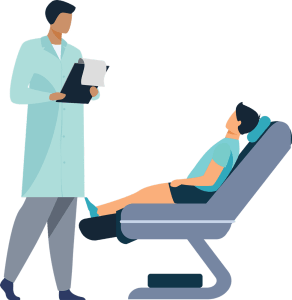
If you’re struggling with depression in South Pasadena and want to experience the benefits of seeking professional help, call Lucid Wellness Center at (323)792-2071 today.
Our team of mental health professionals can provide you with a safe and supportive environment, accurate diagnosis, customized treatment plans, and effective coping strategies. Don’t wait any longer, take the first step towards improved mental health by calling us now.
Types of Depression Treatment Available in South Pasadena
When it comes to depression treatment in South Pasadena, there are several options available, including outpatient and residential treatment programs.
Outpatient Treatment Programs
Outpatient treatment programs provide flexibility for individuals to receive treatment while still being able to continue with their daily lives. These programs provide various services, including therapy, medication management, and other forms of support. Intensive outpatient programs are less restrictive than inpatient programs, allowing individuals to continue working, attending school, or caring for their families while receiving depression treatment.
Outpatient programs can be effective for mild to moderate depression and are a great option for those who cannot commit to an inpatient program.
Residential Treatment Programs
Residential treatment programs, also known as inpatient treatment programs, provide a more intensive level of care for individuals with severe depression. These programs involve living at a care facility for a specified period and receiving round-the-clock care from mental health professionals.
Residential treatment can be effective for individuals requiring a higher level of care or not responding well to outpatient treatment.
Remember that the type of treatment recommended for you will depend on your symptoms, severity of depression, and personal preferences. Working with a mental health professional can help determine the best course of treatment for managing your condition.
If you or a loved one are struggling with depression in South Pasadena, don’t hesitate to seek help. There are various treatment options available, including outpatient and residential programs. Contact one of the depression treatment centers near you to learn more about their programs and find the right fit for your needs.
Remember, taking the first step toward getting help is the most important one!
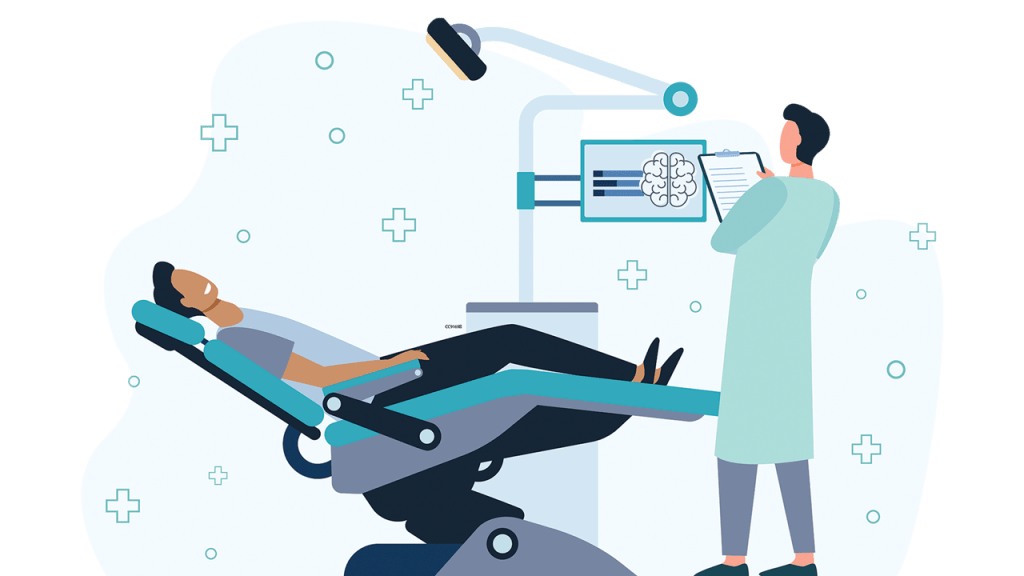
Exploring Different Options for Treating Depression in South Pasadena
- Medications. Antidepressants such as Selective Serotonin Reuptake Inhibitors (SSRIs) and Serotonin-Norepinephrine Reuptake Inhibitors (SNRIs) can be prescribed to manage symptoms of depression.
- Psychotherapy. Also known as “talk therapy,” this form of depression therapy involves talking to a mental health professional to help identify negative thought patterns and behavior contributing to your condition. Psychotherapy also addresses the psychological trauma that underlies a patient’s condition and finds ways to get past them.
- Cognitive Behavioral Therapy (CBT). Cognitive therapy is a type of psychotherapy that helps patients identify negative thought patterns and replace them with more positive ones.
- Interpersonal Therapy (IPT). This type of depression therapy focuses on improving communication and relationships with others to help reduce symptoms of depression.
- Electroconvulsive Therapy (ECT). This is a type of brain stimulation therapy often recommended for people with severe cases of depression. ECT involves sending small electrical currents through the brain to trigger a seizure.
- Transcranial Magnetic Stimulation (TMS). This is a non-invasive procedure that uses magnetic fields to stimulate nerve cells in the brain to improve depression symptoms. TMS is also a type of brain stimulation therapy but is less invasive and safer than ECT. It is usually helpful for people who do not respond to medication and therapy.
- Alternative therapies. Alternative therapies, such as mindfulness-based interventions and acupuncture, may also be used to treat depression. These treatments focus on the mind-body connection, promoting relaxation and reducing stress.
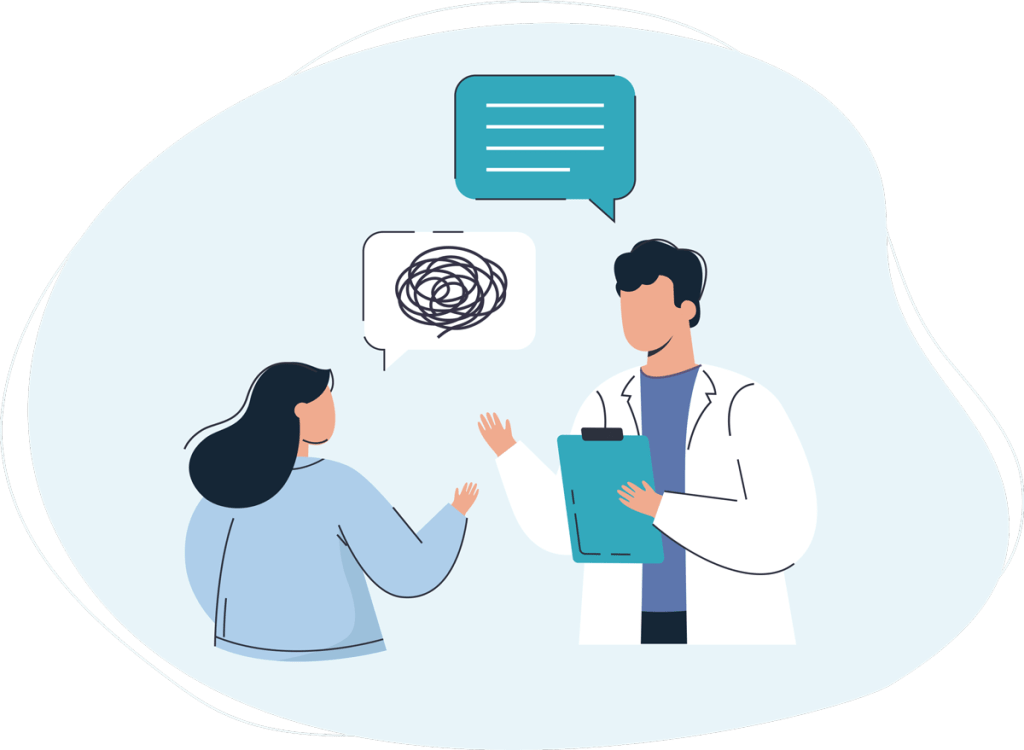
How to Choose the Right Depression Treatment Center in South Pasadena
When looking for a depression treatment center in South Pasadena, it’s important to consider several factors to ensure that you receive the right treatment for your needs.
Here are some things to keep in mind:
- Accreditation and Licensing. Ensure that the treatment center is licensed and accredited by a reputable organization, such as the Joint Commission on Accreditation of Healthcare Organizations (JCAHO) or the National Committee for Quality Assurance (NCQA). Accreditation ensures that the center meets certain standards of quality and safety.
- Specialization. Look for a center that specializes in treating depression and has experienced staff trained to provide evidence-based treatments such as Cognitive Behavioral Therapy (CBT), Interpersonal Therapy (IPT), and medication management.
- Treatment Approach. Consider the treatment approach of the center when it comes to depression therapy. Does it offer a range of evidence-based practices that are tailored to the individual needs of patients? Can it provide comprehensive care, such as combining medication management with therapy?
- Cost and Insurance. Check whether the center accepts your insurance and what your out-of-pocket costs will be. You may also want to inquire about payment plans or financial assistance.
- Location and Amenities. Consider the location of the center and its amenities, such as recreational activities, comfortable living spaces, and access to outdoor areas. These factors can have an impact on your overall experience in the program.
By taking the time to consider these factors, you can find a depression treatment center in the United States that is best suited to your needs and can help you achieve your goals for recovery.
Depression Treatment at Lucid Wellness Center
Depression is a serious mental health condition that affects millions of people worldwide. While medication and talk therapy are the most commonly used treatments for depression, they do not always work for everyone.
At Lucid Wellness Center in Los Angeles, CA, we offer an alternative approach to depression treatment that may be the right option for those who have not succeeded with conventional treatments. Our evidence-based approach combines cutting-edge techniques with compassionate clinical care to help patients regain their hope and experience long-term relief.
We take a holistic approach to depression treatment, focusing on the condition’s underlying causes rather than just the symptoms. Our treatment plans are tailored to each patient’s individual needs, and we use a variety of evidence-based techniques to help our patients overcome depression.
One of the treatments we offer at Lucid Wellness Center is Transcranial Magnetic Stimulation (TMS) therapy. TMS therapy is a non-invasive procedure that uses magnetic fields to stimulate nerve cells in the brain. This stimulation has been shown to improve symptoms of depression in many patients, even those who have not responded to medication or other treatments.
Our team of clinical professionals is committed to providing the highest level of care to our patients, and we are constantly exploring new and innovative treatments to help those who are struggling with depression.
Liz Dean
I have done and completed the whole process. I have had a positive result, still seeing little ways of how the treatment has helped. So for me it's a yes, don't knock it till you try it.
Paul Black
Stuart Lyon
Tanisha Lewis
Joshua Bear
Castle Brusa

At Lucid Wellness Center, we believe everyone deserves to live a happy and fulfilling life, free from the debilitating effects of depression. If you or a loved one is struggling with depression, contact us today to learn more about our evidence-based approach to depression treatment. We offer same-day and next-day appointments, and our team is always here to answer any questions you may have. Let us help you regain your hope and experience a brighter tomorrow.
Our resident psychiatrist Dr. Chaghouri is the best in his field. Dr. Chaghouri is dedicated to staying up-to-date with the latest advancements in psychiatry and regularly attends conferences and workshops to further his knowledge and expertise. He is a caring and empathetic provider who works closely with his patients to develop personalized treatment plans that address their unique needs and goals.
Call (323)792-2071 to book a session with Dr. Chaghouri today!
FAQs About Depression Treatment in South Pasadena
How is depression treated in South Pasadena?
Depression is typically treated through a combination of therapy and medication in South Pasadena. Cognitive-behavioral therapy (CBT) is a common approach used to help people learn how to identify negative thoughts and behaviors and replace them with positive ones. In addition, antidepressants like selective serotonin reuptake inhibitors (SSRIs) are often prescribed to help manage symptoms. When these approaches do not work, alternative treatment programs such as transcranial magnetic stimulation (TMS) therapy or other brain stimulation therapy may be suggested.
What types of depression treatment are available in South Pasadena?
In addition to therapy and medication, there are other types of depression treatment available in South Pasadena. Transcranial magnetic stimulation (TMS) therapy is a non-invasive procedure that uses magnetic fields to stimulate nerve cells in the brain to improve symptoms of depression. Alternative treatments such as acupuncture, yoga, and meditation can also be effective for some individuals.
How can I tell if I'm suffering from depression?
Are there any support groups for people with depression in South Pasadena?
There are support groups available for people with depression in South Pasadena. The Depression and Bipolar Support Alliance (DBSA) is a national organization with local chapters that offer support group therapy for individuals struggling with mood disorders.
What is the best type of medication for treating depression in South Pasadena?
SSRIs are commonly prescribed in South Pasadena for treating depression because they are generally well-tolerated and have fewer side effects than other antidepressants. However, the best type of medication for treating depression can vary from person to person. Working with a healthcare professional to determine the most effective treatment plan for your specific needs is important.
Is TMS therapy right for me if I am struggling with depression?
TMS therapy may be a good option for individuals who have not responded well to traditional treatments like medication and therapy. However, it is important to speak with a healthcare professional to determine if TMS therapy is right for you. TMS therapy is typically only used for individuals who have been diagnosed with major depression, but TMS can also be effective in managing other types of mental health disorders.
What should I expect during a therapy session for depression?
During a therapy session for depression, you can expect to discuss your symptoms and any other issues that may be impacting your mental health. Your therapist may use techniques like cognitive behavior therapy and other modalities to help you learn coping skills and develop a more positive outlook. Therapy sessions are typically 50-60 minutes long and may occur weekly or bi-weekly.
Are there any resources available to help me manage my depression in South Pasadena?
Many resources are available to help you manage your depression in South Pasadena. In addition to therapy and medication from treatment centers, there are self-help resources like books and online courses that can teach you coping skills and strategies for managing your symptoms. Keep in mind that while all of these can help, it is also important to take care of your physical health by eating well, getting regular exercise, and getting enough sleep.
Does insurance cover treatment for depression in South Pasadena?
Many insurance plans cover treatment for major depression in South Pasadena. However, the amount of coverage may vary depending on your specific plan. Check with your insurance provider to determine what services are covered and what out-of-pocket costs you may be responsible for.
Is it possible to find a therapist specializing in a postpartum depression near me in South Pasadena?
You can easily find a therapist specializing in treating postpartum depression in South Pasadena. Many mental health professionals have specialized training in postpartum depression, and you can search for them using online directories or by asking for recommendations from your healthcare provider. It's important to seek help from a mental health professional who understands the unique challenges of postpartum depression and can provide proper care and effective depression treatment options.
- American Psychiatric Association. (2013). Diagnostic and statistical manual of mental disorders. https://doi.org/10.1176/appi.books.9780890425596
- Coombs, N. C., Meriwether, W. E., Caringi, J., & Newcomer, S. R. (2021). Barriers to healthcare access among U.S. adults with mental health challenges: A population-based study. SSM – Population Health, 15. https://doi.org/10.1016/j.ssmph.2021.100847
- Hudson JI, Hiripi E, Pope HG Jr, Kessler RC. The prevalence and correlates of eating disorders in the National Comorbidity Survey Replication. Biol Psychiatry. 2007 Feb 1;61(3):348-58. doi: 10.1016/j.biopsych.2006.03.040. Epub 2006 Jul 3. Erratum in: Biol Psychiatry. 2012 Jul 15;72(2):164. PMID: 16815322; PMCID: PMC1892232.
- National Research Council (US) and Institute of Medicine (US) Committee on Depression, Parenting Practices, and the Healthy Development of Children; England MJ, Sim LJ, editors. Depression in Parents, Parenting, and Children: Opportunities to Improve Identification, Treatment, and Prevention. Washington (DC): National Academies Press (US); 2009. 3, The Etiology of Depression. Available from: https://www.ncbi.nlm.nih.gov/books/NBK215119/
- NHS. (2019, December 10). Symptoms – Clinical depression. NHS choices. Retrieved February 28, 2023, from: https://www.nhs.uk/mental-health/conditions/clinical-depression/symptoms/
- Substance Abuse and Mental Health Services Administration. DSM-5 Changes: Implications for Child Serious Emotional Disturbance [Internet]. Rockville (MD): Substance Abuse and Mental Health Services Administration (US); 2016 Jun. Table 9, DSM-IV to DSM-5 Major Depressive Episode/Disorder Comparison. Available from: https://www.ncbi.nlm.nih.gov/books/NBK519712/table/ch3.t5/
- Williams, S. Z., Chung, G. S., & Muennig, P. A. (2017). Undiagnosed depression: A community diagnosis. SSM – Population Health, 3, 633-638. https://doi.org/10.1016/j.ssmph.2017.07.012
- World Health Organization. (n.d.). Depression. World Health Organization. Retrieved February 27, 2023, from: https://www.who.int/news-room/fact-sheets/detail/depression
Beverly Hills, CA 90211
For driving directions, click here. Type in your starting address and pick a route. Click the "Details" link underneath the route, then click the phone icon and choose the device or email address where you want to receive the directions.
Treatments are fast and can be done on your lunch break with same day and next day appointments available to fit your busy schedule.
Click here to fill out the new client form and we will call you to schedule an initial consultation or next appointment for TMS therapy at our Los Angeles clinic. You can also reach us sooner by calling (323) 792-2071.


